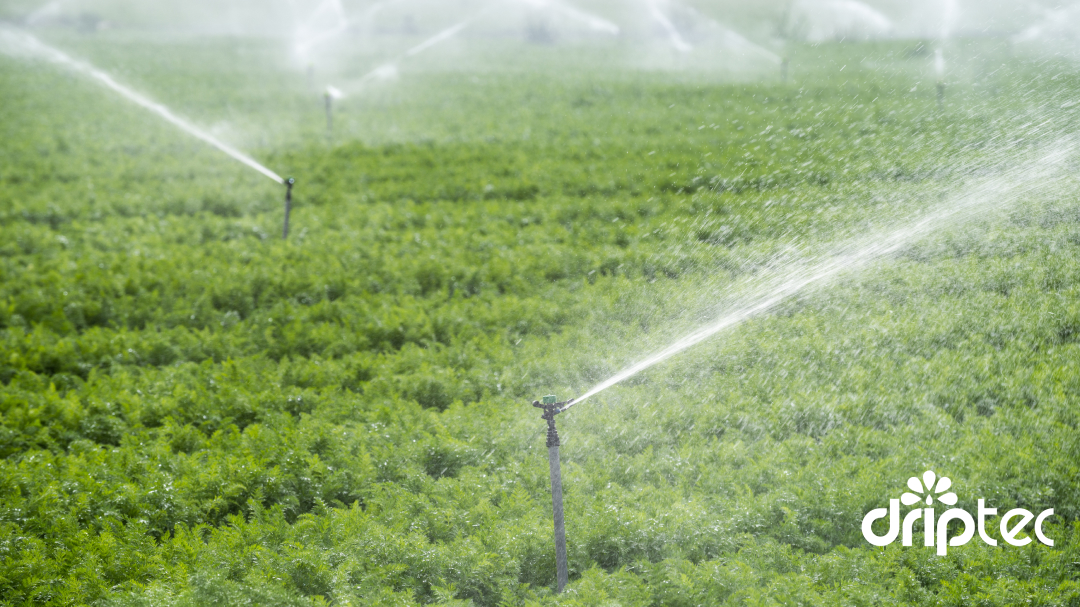1. Types of Pipes for Efficient Irrigation Systems: A Comprehensive Guide
Say hi to everyone, Today, Driptec would like to send to all of you, those who are interested in Identifying and Distinguishing the Types of Pipes for Efficient Irrigation Systems, some knowledge on this issue.
The reason why we sends to you the knowledge related to Distinguishing the types of pipes in the automatic irrigation system is because in different irrigation systems, as well as depending on the actual conditions of terrain, scale and investment capacity, or requirements for durability, ability to roll up, move the irrigation system… we can choose different types of pipes in the irrigation system.
So, let’s learn about the Types of Pipes for Efficient Irrigation Systems: A Comprehensive Guide with Driptec.
2. uPVC pipe irrigation systems
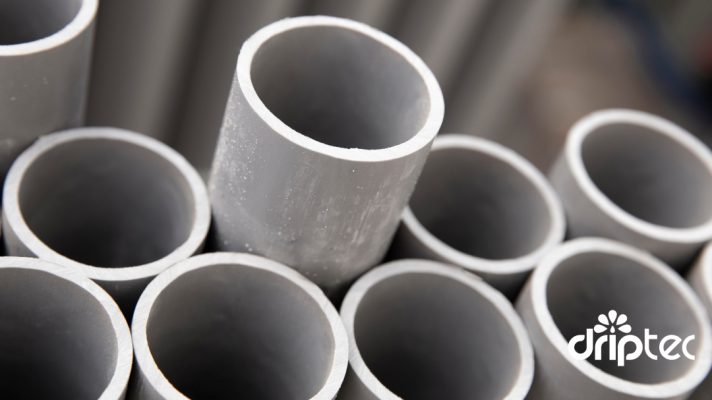
First of all, uPVC pipes are the most popular and recognizable type of pipe on the market today, uPVC pipes are often very popular in civil and industrial construction as well as in automatic irrigation systems.
Definition of uPVC pipes
When it comes to pipes, there are many types of materials that can be used. PVC, or polyvinyl chloride, is one of the most popular materials for making pipes and uPVC, is a type of PVC that has some unique advantages.
So what is UPVC pipe? uPVC stands for Unplasticized Poly Vinyl Chloride, which is a type of pipe made from solid PVC plastic.
uPVC pipes and fittings have many advantages over other types of pipes such as copper or steel due to their flexibility in use, construction as well as cost.
uPVC pipe characteristics
- Usually gray in color
- Hard, straight pipe, no ability to roll the pipe
- On the market, it is usually produced in 4m-6m lengths
- Pressure resistance is usually about 6-20bar
- Common pipe sizes: 21mm, 27mm, 34mm, 42mm, 60mm, 90mm, 114mm …
- Connection: glue
Outstanding features of uPVC pipes
- non-toxic
- Durable
- Easy to connect
- Low maintenance costs
- Reasonable cost
- Limit leakage
- Low pressure loss
- Acid resistance
- High temperature resistance …
Common applications of uPVC pipes in irrigation systems
- Used as main pipes, branch pipes
- Used as pipes to attach sprinklers
- Used as pump suction pipes
3. HDPE pipe in irrigation systems
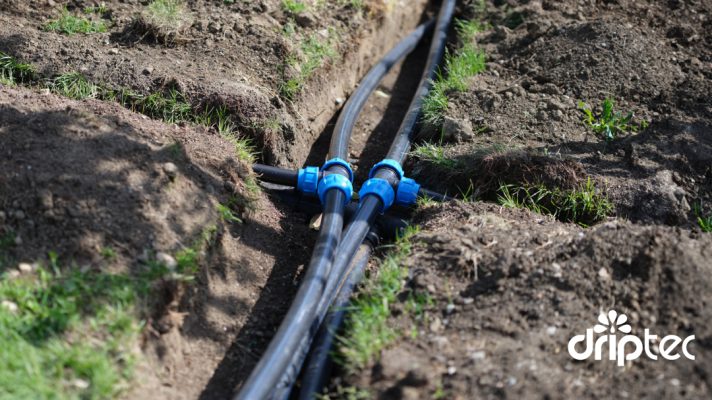
HDPE Pipe definition
Characteristics of HDPE pipes for irrigation systems
- Usually black, or blue (very rare)
- Relatively hard but can still be rolled
- 50mm or 100m roll
- Quite high pressure resistance: 6 to 20bar
- Common pipe sizes: 32mm, 40mm, 50mm, 63mm, 90mm, 110mm …
- Connection: belt, or heat welding
Highlights when applied in irrigation systems
- Flexible
- Durable
- Chemical resistance
- Anti-leakage
- Lightweight
- Economical
- Environmentally friendly
- Low pressure loss
Common applications of HDPE pipes in irrigation systems
- Used as main water transmission pipes
- Commonly applied in mountainous areas
- Commonly applied for mobile irrigation, mobile gun irrigation
4. LDPE pipe in irrigation systems
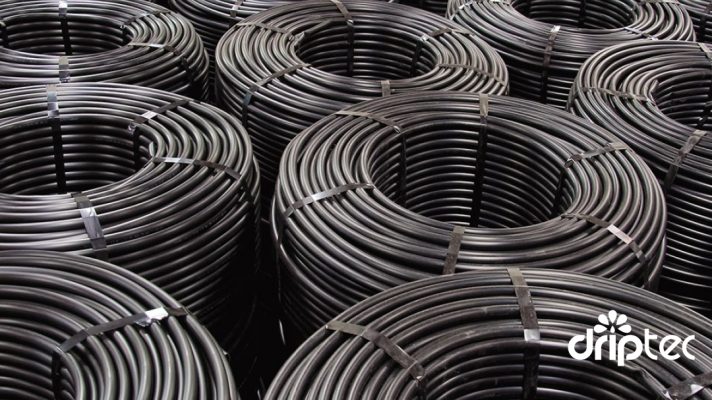 If uPVC pipes, LDPE pipes are commonly used in irrigation systems as water pipes, main pipes, branch pipes. LDPE pipes are often used as fishbone pipes, final supply pipes in irrigation systems, pipes to attach sprinklers or drippers.
If uPVC pipes, LDPE pipes are commonly used in irrigation systems as water pipes, main pipes, branch pipes. LDPE pipes are often used as fishbone pipes, final supply pipes in irrigation systems, pipes to attach sprinklers or drippers.LDPE pipe definition
LDPE pipe characteristics
- LDPE pipes are quite flexible (more flexible than HDPE pipes)
- The pipes are usually produced in black or silver (2-layer pipes)
- The pipes are easily rolled
- The roll length is usually 200m
- The pressure resistance is usually low, about 4-6bar
- Common pipe sizes are 4*6mm, 5*7mm, 16mm, 20mm, 25mm, 32mm
- Connection: barbed joints
Highlights when using LDPE pipes in irrigation systems
- High flexibility
- Easy to construct and install
- High durability
- No leakage
Application of LDPE pipes in irrigation systems
5. PVC layflat hose in irrigation systems
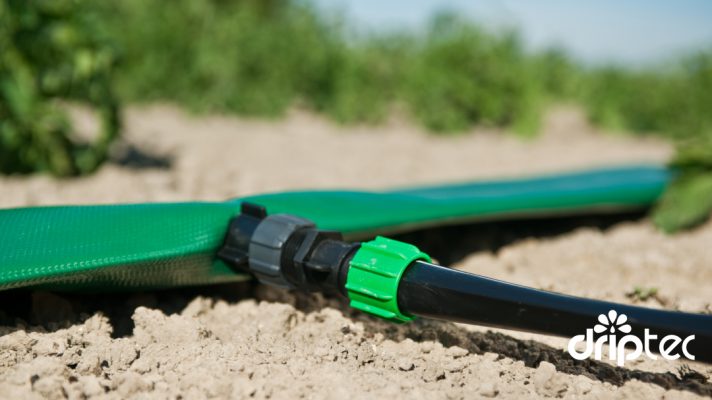
PVC hose concept
Characteristics of PVC collapsible pipe
- When not loaded with water, the collapsible pipe is thin and easy to roll up
- The pipe usually has a pressure resistance of about 4-8bar
- In the irrigation system, the pipe usually has a diameter of 50mm, 63mm, 90mm
- 50m or 100m roll
- Connection: use quick-release joints with pipe clamps.
Highlights of PVC collapsible pipe in irrigation system
- Easy to roll up – transport, move
- Lightweight, flexible in use
- Moderate pressure resistance (4-8bar) suitable for drip irrigation or mobile gun irrigation.
Common applications of PVC collapsible pipe in irrigation system
- Used as a branch pipe to attach drip pipes
- Used in mobile gun irrigation systems
- Used in cases of collapsing the irrigation system after each crop season (common when renting land for planting, or rolling up so that machinery can work).
6. PE layflat hose in irrigation systems
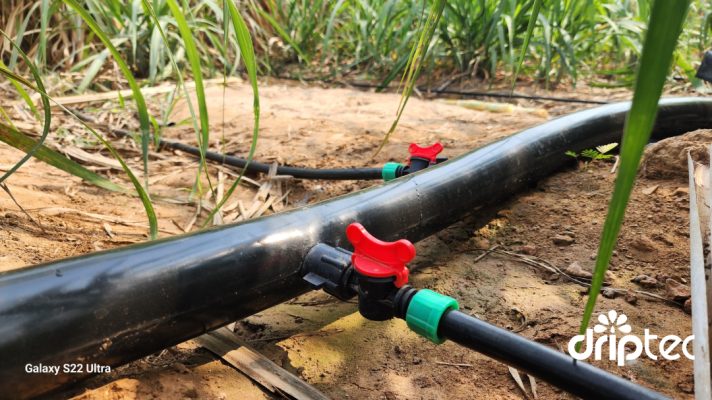
7. Soft PE pipe in Irrigation systems
Soft PE pipe is a special type of pipe that is usually produced with an inner diameter of 3mm and an outer diameter of 5mm (also known as 3x5mm PE pipe). This pipe is often used as a conduit in drip irrigation systems using pins. Applicable to watering potted plants (such as Cantaloupe irrigation), automatic watering for greenhouse irrigation.
8. Conclusion
Above we discuss for Types of Pipes for Efficient Irrigation Systems: A Comprehensive Guide, we hope the reader can know more about the options and have the right choice for your irrigation systems.

